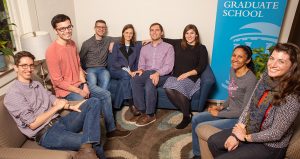Weiss Urban Livability Fellowship first of its kind at UNC
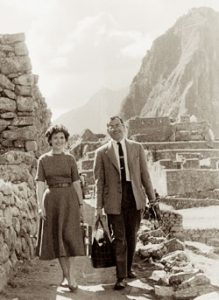
Shirley and Charles Weiss, longtime faculty members at the University of North Carolina at Chapel Hill, dedicated the majority of their lives to traveling the world and problem solving. During a vacation trip to Houston, the Weisses began formulating an idea on an airplane napkin to tackle local and national challenges in urban areas. With the goal of making cities more livable, accessible and affordable, the Weisses created the Weiss Urban Livability Program within The Graduate School.
The interdisciplinary program focuses on groundbreaking research, innovative community projects and collaborative symposiums. Twenty-five years later, more than 200 graduate students from more than 20 academic disciplines have received fellowships through the Weiss program.

Weiss fellowships help recruit outstanding first-year master’s degree students to UNC-Chapel Hill, offering a stipend, tuition and health insurance for one year. The program also incorporates generous access to on-campus music, theater and performing arts events. These added benefits were of great importance to the Weisses.
In the 1950s, the couple moved to Chapel Hill in hopes of establishing a “forever home” in an area where innovation was prevalent. Charles Weiss became the fifth faculty member of the sanitary engineering department within what is now the Gillings School of Global Public Health. He specialized in aquatic biology and taught full-time. Shirley Weiss became a professor in the University’s city and regional planning department in 1973. She led the University in a number of research projects centered on developing sustainable communities throughout the state and ushered in the next generation of urban livability researchers. Her commitment to urban livability continued until her death in 2010.
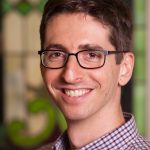
Matthew Cohen-Price, a current fellow and first-year master’s degree student in city and regional planning, said the Weiss fellowship was a major financial factor in selecting UNC-Chapel Hill for his graduate education. He added that even before arriving in Chapel Hill, he believed that addressing the challenges of city life required an interdisciplinary approach. The Weiss Urban Livability Program introduced him to a new way of extending that approach: livability.
“From a planning standpoint, anyone who lives in a city should be able to take part in all of the urban amenities that come with living in a city whether that’s public transit or parks or affordable housing,” Cohen-Price said. “The fellowship has given me an incredible forum to have great conversations about complex urban problems from an interdisciplinary lens with students from fields as diverse as sociology, art, social work and geography.”
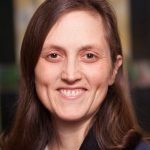
Erica Wood, a first-year public health master’s degree student in environmental sciences and engineering, said that being a Weiss fellow has had a positive impact on her environmental health research on well water in urban areas.
“Tackling topics through different perspectives is what adds to the richness of this program,” Wood said.
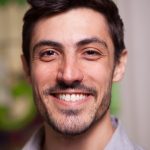
Travis Moe, a second-year master’s degree student in the School of Social Work, describes the program as one that brings together thoughts, perspectives and talent from across disciplines to work on major projects that can impact community members.
“The Weiss fellowship reminded me that if you want things to be different, be proactive,” Moe said. “You can help improve your community by taking initiative.”
Weiss fellows work on annual class projects ranging from working with communities after natural disasters to creating mentorship programs for local children. The graduate students work tirelessly on these group projects in addition to their full-time academic schedule and research assistantships.
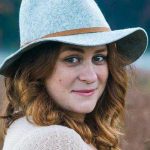
Last year, Katherine Hysmith, a second-year master’s degree student in American studies, spearheaded the Weiss fellows’ 2016–2017 group project: the Foodways Walking Tour. The Weiss fellows wanted to focus on community members who utilized food to make an impact — such as Vimala’s Curryblossom Café, a restaurant that prioritizes social justice and sustainability.
“We stopped at Vimala’s — she [the owner] gives away a lot of free food to students and people who are in need,” Hysmith said. “We stopped by, surprisingly, the McDonald’s on Franklin Street because it’s a historic site for African-American community building.”
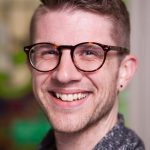
Travis Crayton, a dual master’s degree student in public administration and city planning, has been a part of the Weiss program for three years. The senior fellow serves as a project manager who is responsible for seminar coordination, syllabus creation and program event planning.
“I’m also a student and that really helps foster a very collegial dialogue among fellows who come in from different disciplines,” Crayton said.
The Weiss senior fellow also serves as a mentor for new Weiss fellows entering in the program.
“In terms of a mentorship, I think it’s really beneficial when you have a senior fellow who’s been here a year when most fellows are just moving to our community,” Crayton said. “It’s helpful to have someone who can sort of acclimate you to a new community that you’re going to be a part of for at least the next few years.”
Crayton also said that Charles Weiss, at age 99, continues to play an active role in the program. Charles Weiss has a vibrant personality and meets with the fellows each semester to offer professional advice and encouragement.
“He always has this wonderful sense of humor and just makes everybody sort of feel really comfortable in the room to be able to have a conversation with him,” Crayton said. “That’s something that I think is fascinating.”
By Lauren Houston
